As the Shanghai-born Hong Kong filmmaker Wong Kar-wai enters his 63rd year, I think it is a great time to revisit his masterful filmography with a fresh perspective for a new generation of cineastes. A towering giant of Asian cinema, Wong Kar-wai’s ubiquitous influence on films and filmmakers over the last three decades has been widely noted and observed by some of the most eminent film scholars and academics the world over.
While Wong Kar-wai has only directed 10 feature films so far, each of it bears the signature of an auteur exercising an absolute mastery over the spatial, temporal, visual, and sensory dimensions of the cinematic medium. His films are noted for their moody, neon-lit urban landscapes, inhabited by melancholic and lonely characters, photographed with dazzling beauty by the long term collaborator Christopher Doyle. Wong often uses rain to add another layer to his frames.
Through his films, Wong Kar-wai has immortalized the city of Hong Kong in the same way Max Ophüls immortalized Vienna, Alfred Hitchcock San Francisco, Yasujirō Ozu Tokyo, Vittorio De Sica Rome, Jean-Luc Godard Paris, Michelangelo Antonioni London, Woody Allen New York, Satyajit Ray Kolkata (erstwhile Calcutta), Wim Wenders Berlin, and Ram Gopal Varma Mumbai (erstwhile Bombay).
Read 50 All-Time Best Hollywood Films – Part IV
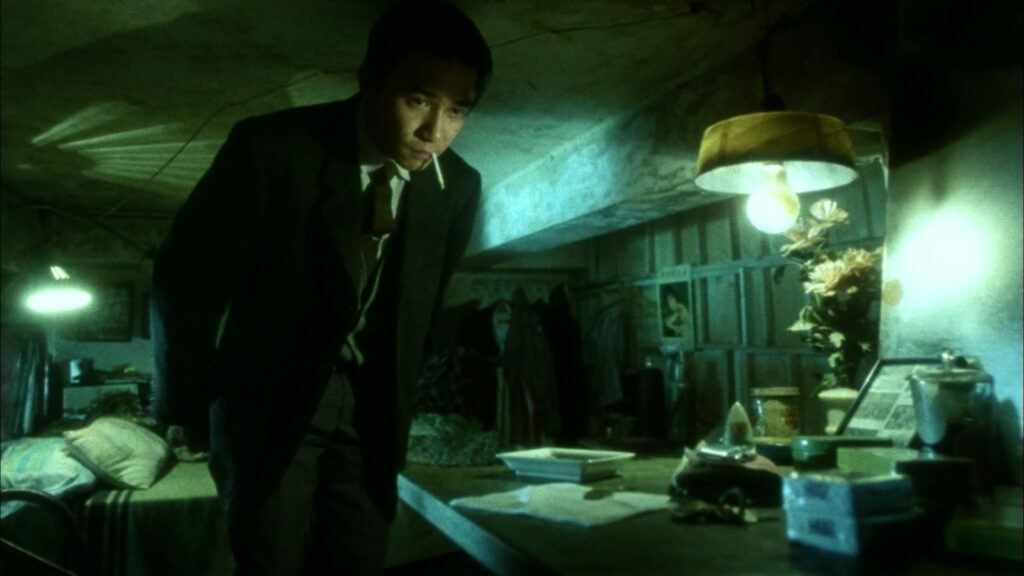
Collaboration between Wong Kar-wai and Christopher Doyle
With his very first film As Tears Go By, the 1988 Hong Kong action drama, Wong Kar-wai offered strong glimpses of what his cinema would become synonymous with in the years to come. But it was with his second film, Days of Being Wild, the 1990 romance drama, that Wong Kar-wai finally unleashed his trademark filmmaking style. The film marked the beginning of his legendary collaboration with Doyle.
Whether Wong is making a film in Hong Kong or elsewhere, the theme of unrequited love always remains central to his work owing to which there is always great pain associated with his films but there is also immense beauty. Perhaps, this is best demonstrated in his next two films, Ashes of Time (a wuxia film set in Ancient China) and Chungking Express (a crime drama set in Hong Kong), both of which released in the year 1994. While both the films are poles apart with completely different settings, Wong’s perennial theme of unrequited love bonds them together.
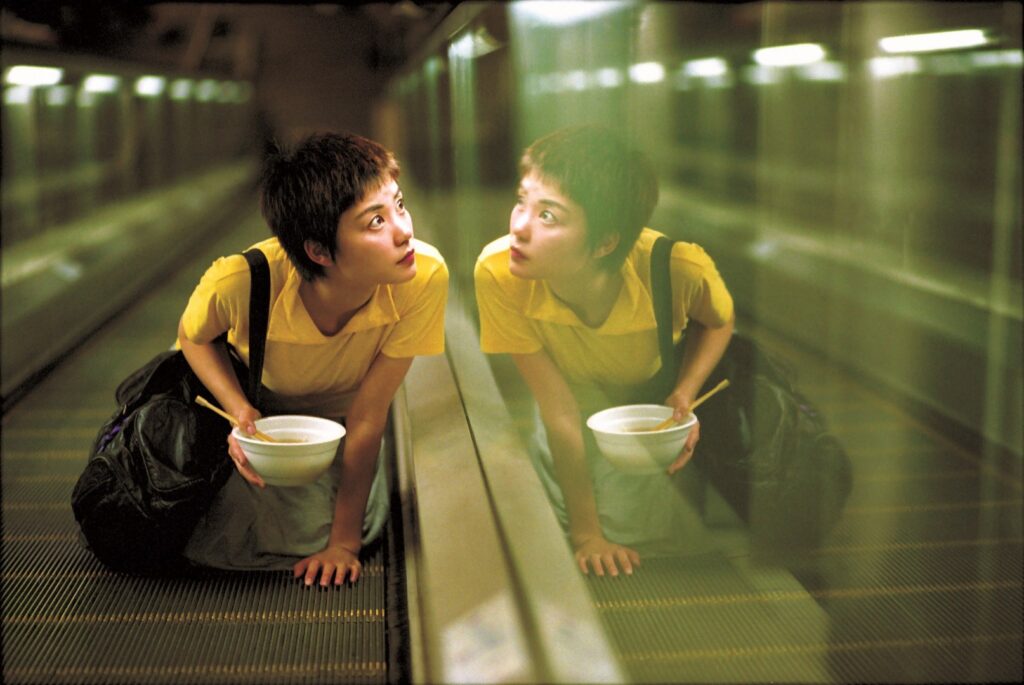
The complex narrative of Ashes of Time
Interestingly, he made Chungking Express during a quick break he took from the exhaustive editing schedule of Ashes of Time. “I decided to make Chungking Express following my instincts. After the very heavy stuff, heavily emphasized in Ashes of Time, I wanted to make a very light, contemporary movie, but where the characters had the same problems,” Wong had famously said. Ironically, Ashes of Time proved to be a commercial disaster but Chungking Express got him international acclaim with Quentin Tarantino personally backing the film.
Nonetheless, Ashes of Time did win Christopher Doyle the Best Cinematography Award at the 1994 Venice Film Festival. The film is not just visually stunning but it also has a very complex narrative and really is a film like no other. It is said to have inspired several other wuxia epics such as Crouching Tiger, Hidden Dragon, Hero, and House of Flying Daggers.
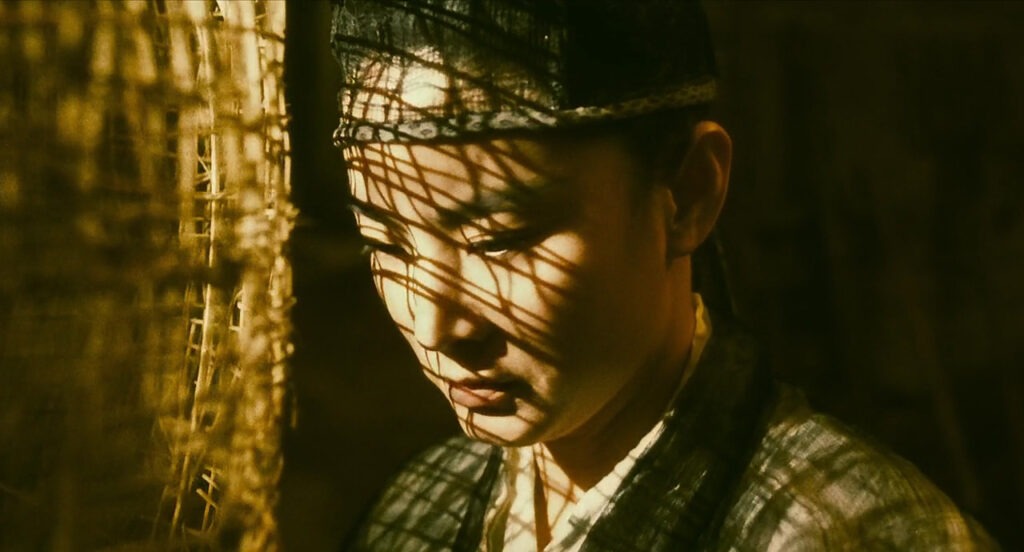
Link between Chungking Express and Fallen Angels
The plot of Wong Kar-wai’s next film Fallen Angels was initially a part of the screenplay for Chungking Express but he later decided to use it for his next project. In fact, the two films are eternally connected to one another. In Wong’s own words, “To me, Chungking Express and Fallen Angels are one film that should be three hours long. I always think these two films should be seen together as a double bill. The main characters of Chungking Express are not Faye Wong or Takeshi Kaneshiro, but the city itself, the night and day of Hong Kong. Chungking Express and Fallen Angels together are the bright and dark of Hong Kong. I see the films as inter-reversible, the character of Faye Wong could be the character of Takeshi in Fallen Angels; Brigitte Lin in Chungking could be Leon Lai in Fallen Angels. All of their characters are inter-reversible.”
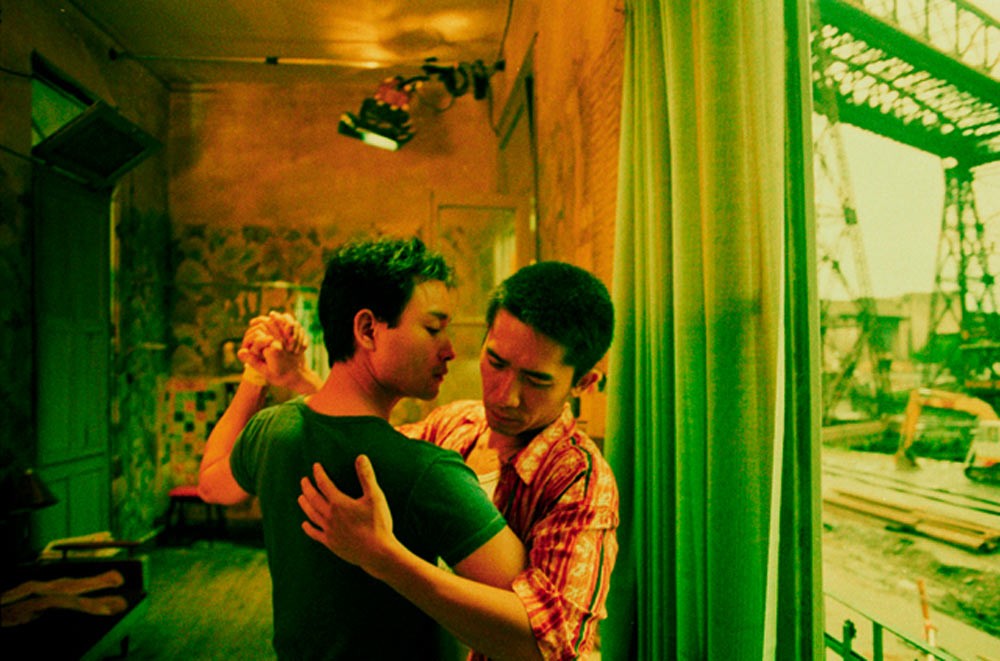
Happy Together and the Wong Kar-wai magnum opus
For his next film, Happy Together, Wong Kar-wai ventured out of Hong Kong. This time he chose to tell a story of a homosexual couple from Hong Kong that visits Buenos Aires hoping to renew their relationship. It’s one of the first Chinese films to deal with the subject of homosexuality. The film went on to win the Best Director award for Wong at the 1997 Cannes Film Festival.
Three years later Wong gave the world his magnum opus, In the Mood for Love, which is widely regarded as one of the greatest cinematic masterpieces of the 21st century. It follows two neighbors (a man and a woman living in 1960s Hong Kong) who develop a strong bond after both suspect extramarital activities of their spouses. However, they decide to keep their bond platonic so as not to commit the same mistake, making the film yet another meditation on impossible love, vintage Wong Kar-wai. The film won the Best Actor award for the leading actor Tony Leung at the 2020 Cannes Film Festival (the first Hong Kong actor to win the coveted award at Cannes).
In a 2016 survey conducted by the BBC, In the Mood for Love was voted the second-best film of the 21st century by 177 film critics from around the globe. The film also served as an introduction to Wong Kar-wai’s oeuvre as far as I am concerned. I remember first watching it as a 20-year-old in the summer of 2009 and it really was a love at first sight with Wong’s cinema.
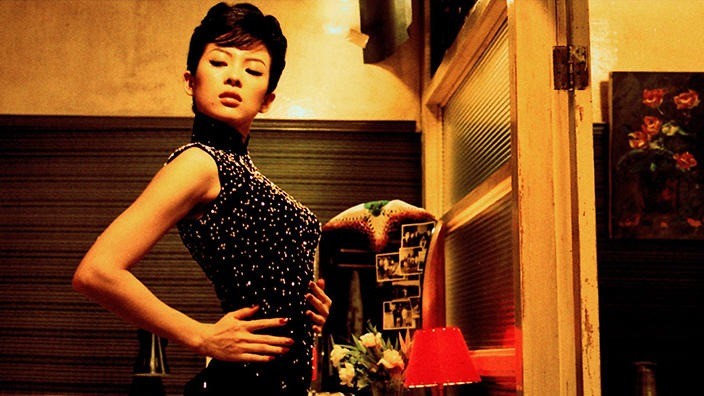
The untold mystery behind 2046
2046, a 2004 sci-fi romance drama, was Wong Kar-wai’s follow up to In the Mood for Love. Often described as loose sequel to Days of Being Wild and In the Mood for Love, 2046 is easily the most complex film that Wong has made till date along with Ashes of Time. Remember, Hong Kong was transferred to China on 1 July 1997, after 156 years of British rule, as per the Sino-British Joint Declaration, in which the United Kingdom agreed to transfer the colony in 1997.
While the Joint Declaration guarantees the Basic Law for 50 years after the transfer of sovereignty, it does not specify how Hong Kong will be governed by China afterwards. This makes 2046 a critical year for the people of Hong Kong with the year 2047 possibly ushering in major changes in Hong Kong’s economic and political systems. Clearly, the title to Wong’s film has strong political undercurrents which further add to the complexity of the film. Wong Kar-wai’s mastery is on full display in 2046. Here is a film that’s nothing less than a cinematic treasure for anyone who has a taste for his style of filmmaking.
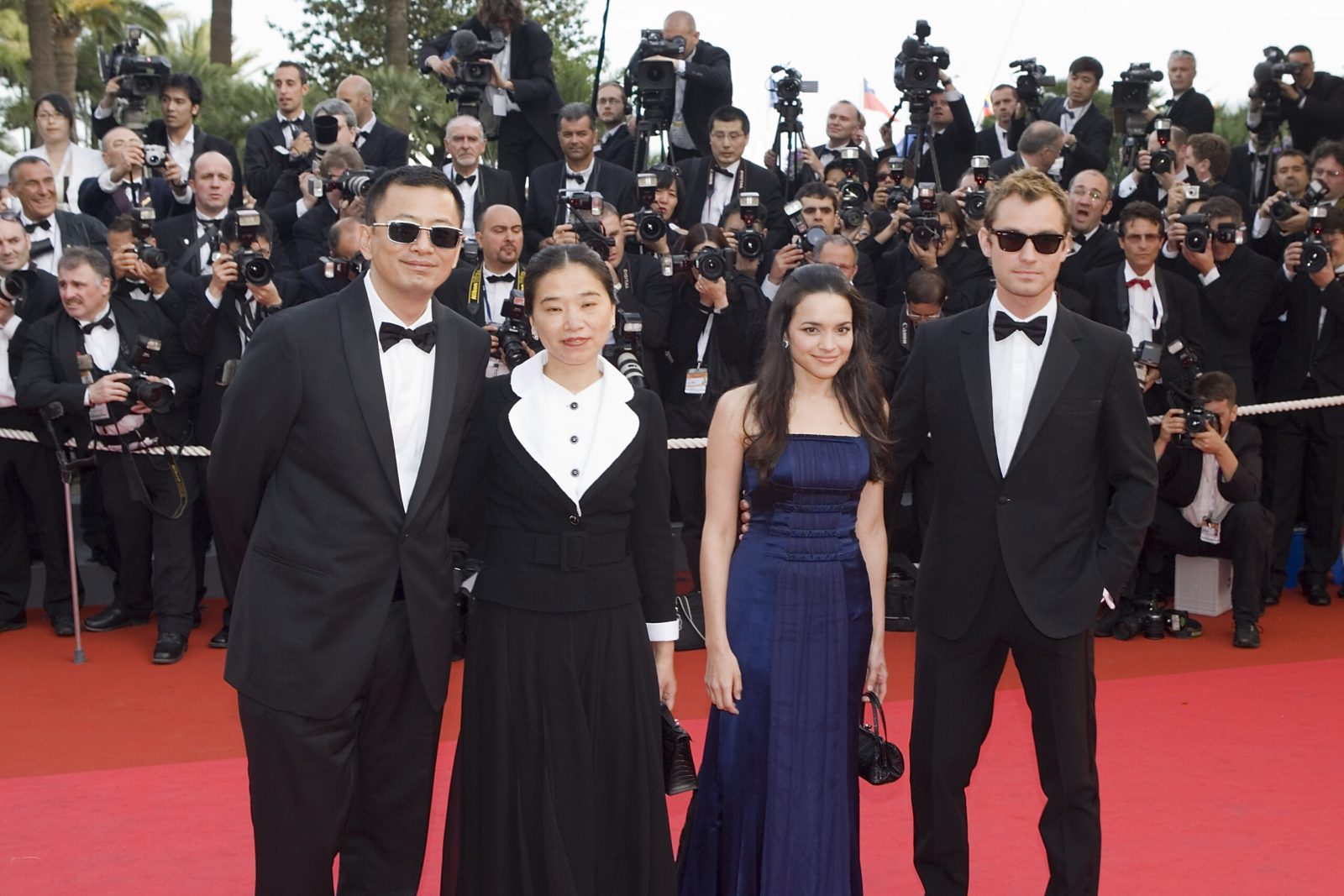
Wong Kar-wai’s last two released films till date
Wong’s next film My Blueberry Nights was an international project starring the likes of Norah Jones, Jude Law, David Strathairn, Rachel Weisz, and Natalie Portman. While it’s a beautiful film it somewhere pales in comparison to Wong’s other films.
It took Wong Kar-wai another 6 years to return to his elements. But the wait was really worth it. Premiering at the 2013 Berlin International Film Festival, The Grandmaster is based on the life story of the Wing Chun grandmaster Ip Man. Yet again, Wong’s mastery is visible in each and every frame of the film.
The multifaceted work of William Chang, Wong’s long term collaborator, is also at full display here in the capacity of an art director, costume designer, production designer, and editor. Also, Philippe Le Sourd’s breathtaking cinematography is one of the film’s major highlights. It remains Wong Kar-wai’s last released film till date.

Wong Kar-wai’s much-awaited project
The wait for a new project from Wong Kar-wai is getting longer and longer. While the master director’s Amazon series ‘Tong Wars’ has been cancelled, his upcoming feature film ‘Blossoms’ has been on hold because of the coronavirus outbreak in China. The film is based on a book by Jin Yucheng, which focuses on several characters in Shanghai from the 1960s to the 2000s.
Interestingly, it is also slated to become a web series for Tencent. “The format of a TV series just provides filmmakers a bigger canvas to tell their stories. Of course, I know why there are questions about this because today people are worried about whether this TV series or this kind of storytelling will become a competition to cinema. I don’t think so. They are just the different children of Lumiere. For filmmakers, they are just different canvases to paint their work, to show their ideas and tell their stories,” Wong Kar-wai had explained.
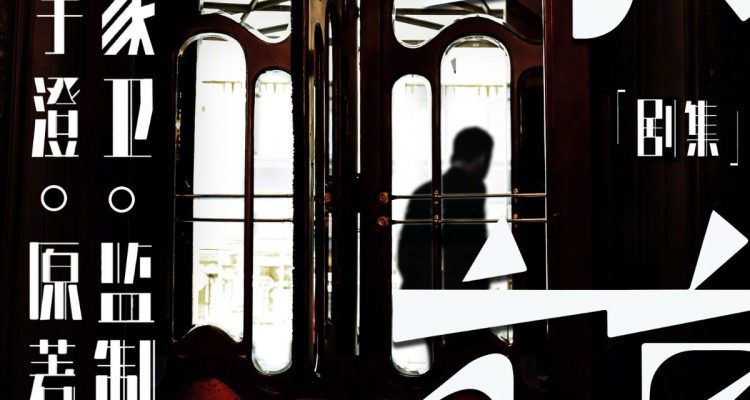
The step-printing effect in Wong Kar-wai’s films
As the world eagerly waits for the Grandmaster’s new project, I think it is a great time to revisit his filmography. Wong’s films are deeply personal and poetic and often get criticized for ignoring the conventions of narrative development. He often begins to shoot his films without a without a finished script but that doesn’t stop him from creating deeply atmospheric films running high on emotions. He uses an interesting mix of colors, sounds, and lights to show us the different moods and feelings of his characters. Step-printing is key technique he often uses to devastating effect in his films to exaggerate a sense of alienation felt by his characters. It’s essentially a process that manipulates film speed, thereby creating a fractured and distorted feel. It’s best displayed in Chunking Express as explained in the following video essay.
The step-printing technique is what gives Wong the ability to dramatically slow down things for the characters while simultaneously ensuring that the world around them continues to move at a frenetic pace. No wonder, his deeply layered cinema bears a strong Godardian influence. In my opinion, this is what separates a true auteur like Wong Kar-wai from all other Hong Kong filmmakers.

